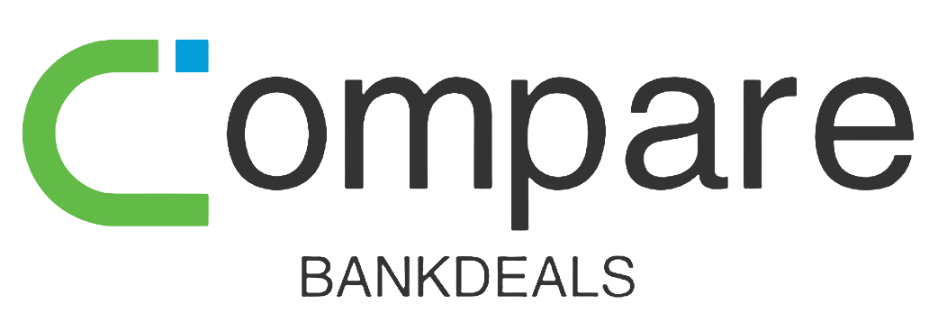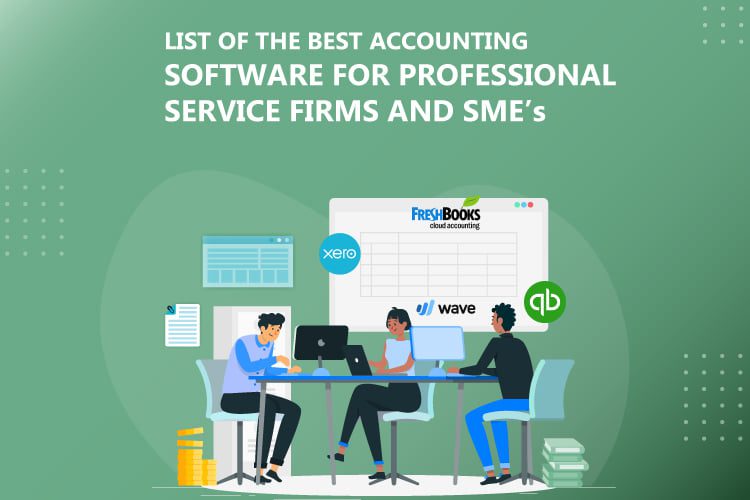The ultimate focus of accounting software is to make your life simpler by rescuing your time and money while also providing you with better perspectives at any time and from anywhere. The only issue is that there are a lot of accounting software solutions out there, all of which claim to be able to do whatever you want. So, which accounting software is best for skilled service firms and small businesses, and where do you look for it?
The top 15 Accounting Software Applications were chosen from many more Accounting Software Applications that were evaluated and classified.
Let’s take a look at the best accounting software.
1. FRESHBOOKS
Freshbooks is the most widely used accounting software, and it is ideal for professionals and small enterprises. It’s a low-cost, web-only solution that excels at traditional bookkeeping and invoicing, making it ideal for small businesses and independent contractors. FreshBooks began as a simple online invoicing service, but it soon expanded to include features such as financial reports, cost and time monitoring, and an impressive family of integrated add-ons.
FreshBooks has introduced numerous minor improvements over the years that have increased its capabilities while maintaining its simplicity and ease of use.
2. QUICKBOOKS
For professional service companies and other small enterprises, QuickBooks is widely considered as one of the finest accounting software. Quickbooks online is well-liked by users due to its extensive features and user-friendly GUI. It’s an easy-to-use accounting system with a lot of features that can meet the needs of most small and medium-sized companies. All models of this software allow you to keep track of your income and expenditures, send invoices, and connect to financial institutions online.
The Essentials version allows up to three users to use the system, while the Plus version adds inventory monitoring, purchase order processing, and access for up to five users.
3. XERO
Invoicing, purchase orders, bank reconciliation, inventory reporting, and more are all possible with Xero, a cloud-based accounting platform. Its accounting software is geared for small and medium-sized enterprises (SMBs). It has a large number of features and an appealing and intuitive user interface, which has made it very common with most users. Xero has mobile applications for Android and iPhone/iPad in addition to browser support.
4. SAGE 50
Simply Accounting was the previous bookkeeping software name for Sage 50. It’s a tried-and-true all-in-one accounting solution for small businesses. Sage, like QuickBooks, uses monthly payment-based cloud versions, which are excellent value for money because they provide payroll.
Sage 50c is the company’s small business desktop accounting solution, which includes a wide range of features and customization options as well as cloud functionality.
5. WAVE ACCOUNTING
It’s accounting software for small businesses that is accessible through the internet.
Wave Accounting’s online accounting software pricing is unique among rivals in that it provides a free version of its software while charging monthly fees for customer care, with two service levels to choose from. It has a pleasant appearance and a collection of features that will cater to a wide range of sole proprietors, contractors, and small businesses.
6. SAGE ONE
Sage one is a simple, low-cost cloud-based accounting package. Sage One is a standard income and cost accounting software for entrepreneurs and small companies. It lacks features like time billing and payroll, and reporting is limited. If you’re just starting as a freelancer or own a small company with no staff, a regular online invoicing/billing kit like Sage One would most likely meet your needs.
7. ZOHO BOOKS
Zoho Books is a fantastic and very versatile accounting service that competes with the industry’s best. Small companies rely heavily on the tool, which is a subscription-based online accounting application. Zoho accounting software is perfect for freelancers because it has features including expense monitoring, invoicing, forecasting, time tracking, and bill payment.
Unfortunately, it does not provide payroll at this time, and it does not integrate with third-party payroll software or services.
8. ACCOUNT EDGE PRO
It’s a standard desktop accounting system that handles payroll and acquisitions and sales. Its double-entry function enables accountants to analyze their files at any time and extract useful data for custom reports.
Powerful inventory reports, automatic invoicing, and direct deposits are just a few of the functions. Mobility is a feature of this financial software for small business owners. This program also includes all necessary banking features, such as the ability to send and receive payments, build accounts, and make electronic payments.
9. FREE AGENT
For all kinds of small companies, this software is easy to use and allows them to manage their finances. It includes simple cost monitoring and invoicing tools, as well as double-entry bookkeeping.
The best part about FreeAgent is that it allows you to have an infinite number of users, invoices, expenses, and clients for a single monthly fee. It also has a useful project management function that allows users to keep track of their project hours. Small companies, contractors, and freelancers will benefit greatly from this accounting package.
10. KASHOO ONLINE ACCOUNTING
This accounting software aims to keep things easy. It offers basic accounting functions and aims to make accounting as easy as possible for business owners.
Bank imports, monitoring, invoices and cost reporting, cash flow, payroll integrations, tax reporting, and data exports are among the features available. It’s cloud-based, provides a straightforward solution, and has some useful smartphone applications.
11. HARVEST
Harvest has time monitoring as a primary feature, with online invoicing as a secondary attribute. This app is best for small business owners or self-employed people who don’t need a complex platform right away. Harvest is a simple platform that allows users to build invoices quickly and easily. Harvest also allows users to export data to Excel and Quickbooks, which is a useful function for anyone who needs to handle monthly invoicing.
12. LESS ACCOUNTING
For skilled service companies, this is the best accounting software. Less Accounting is a QuickBooks option that includes all of the resources a small business needs. It can connect to multiple banks and download transactions, and it includes income and cost monitoring, invoices and proposals, different reports, and mileage tracking, and it can connect to multiple banks and download transactions.
Users can set up a customer communication and customer relationship management system by importing contacts from different address books.
13. NETSUITE
This is mainly CRM (customer relationship management) software. The method, on the other hand, can be used for sales force automation, marketing automation, order management, and customer service. It simplifies financial reporting across a variety of features.
Preconfigured dashboards that users can customize for their individual needs are among the standard features. Users can customize their view of key performance metrics and produce reports that are specific to their position in the business with NetSuite’s robust automation and scalability features.
14. ONE UP
One Up is a small business accounting system that enables users to generate and submit invoices, manage inventory, monitor bills, and more. Depending on the number of users, various pricing levels are available; all features are included in every standard, but one-on-one support is not included in the cheapest bundle. OneUp emphasizes automation of its financial management, of seamless integration with bank accounts.
15. INTACCT
Intacct is the best accounting software for skilled service companies and small businesses that we have discovered. It’s web-based financial accounting software with a wide range of features for small and medium-sized companies.
Intacct, which was established in 1999 in San Jose, California, now has over 30,000 users. As a longitudinal accounting system, the system is suitable for a wide range of sectors, and it is an excellent alternative for small companies looking for a more sophisticated accounting platform. As a result, you must be well-versed in accounting and related procedures to use the software effectively.
As you can see, the most commonly used tools in our list of best accounting software for professional service firms are FreshBooks, QuickBooks, and Xero when compared to others.
Before Winding Up, we would like to let you know the necessity of Accounting software and free bookkeeping software.
Why is accounting software used?
As previously mentioned, accounting software aims to make your life easier by saving you time and money. If it doesn’t, and you can achieve similar results without these methods, you can consider whether the effort of setting up the systems is worthwhile.
The following are some of the common features found in most of the best accounting software for professional service firms mentioned above, as well as some additional reasons to use these tools are,
- The ability to produce invoices that seem professional.
- Your business expenses are automatically monitored when you add your bank account.
- Some apps allow you to monitor your time so you can see how long those tasks take.
- Allow credit card purchases and integrate online payment processing.
- View your profitability in real-time and generate standard reports for financial statements, tax purposes, and more.
- On your mobile device, you’ll have access to all of the functionality and perspectives.
- Overall, the bookkeeping method should become more effective.
- Some processes, such as VAT returns and bank reconciliations, should be automated.
- Your quarterly and year-end reports, as well as your tax returns, should be easier to prepare.
- Reduce the amount you pay your accountants, tax lawyers, and bookkeepers.
- The time that could be spent on more important business operations has been freed up.
- As a result of better and more timely knowledge, make better business decisions.
CONCLUSION:
Accounting software includes functional modules such as accounts payable, accounts receivable, journal, general ledger, payroll, and trial balance that document and process accounting transactions.
Accounting software can be web-based, meaning it can be accessed from anywhere at any time via any Internet-enabled computer, or it can be desktop-based. It varies a lot in terms of complexity and price.



